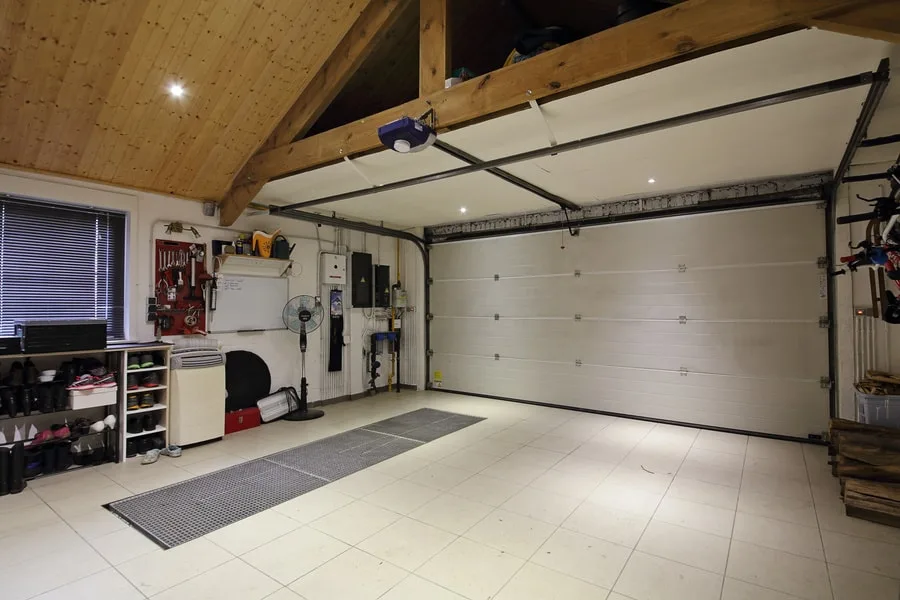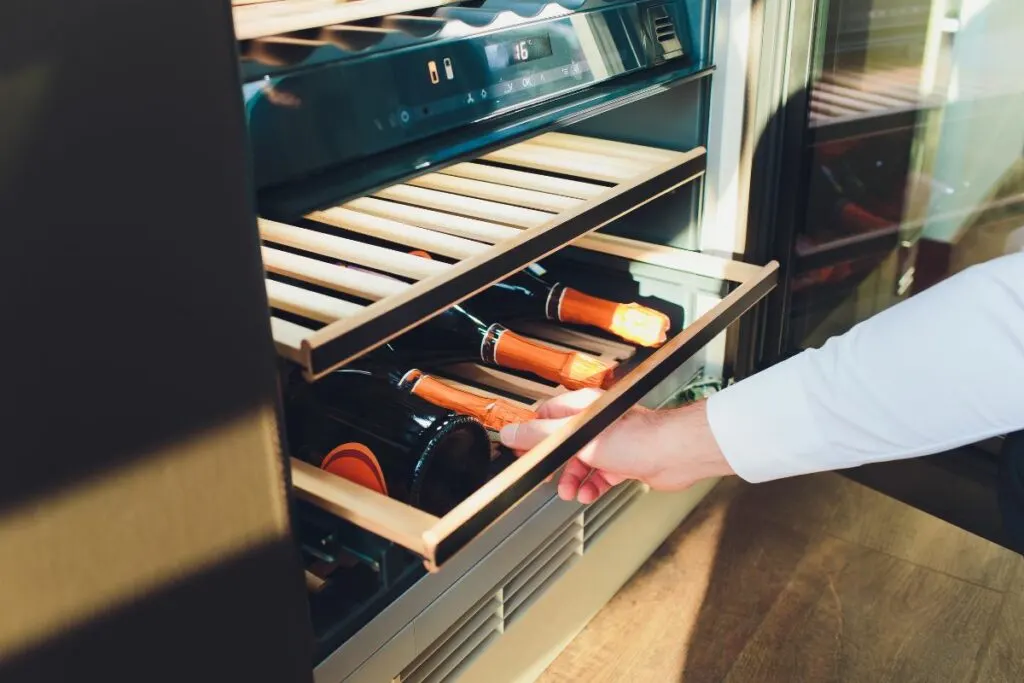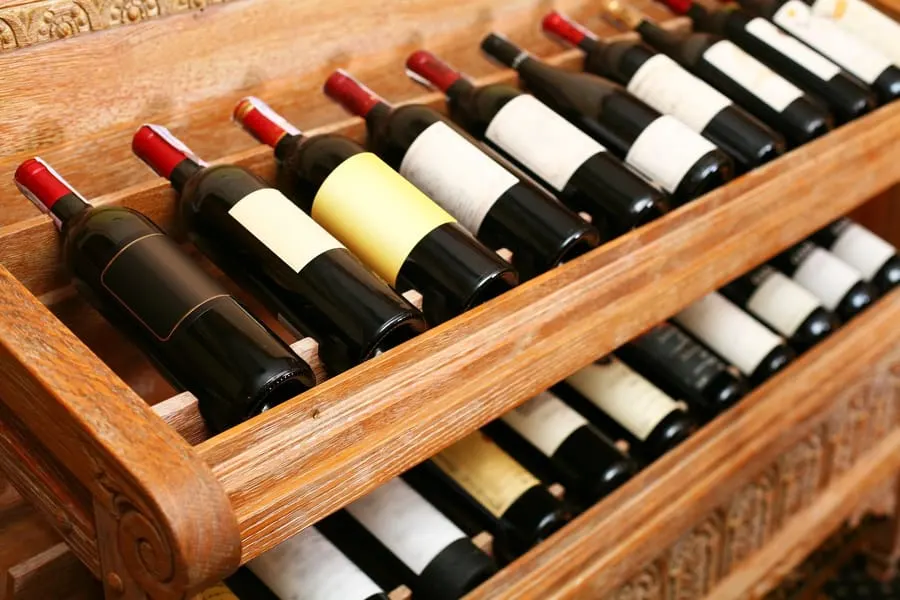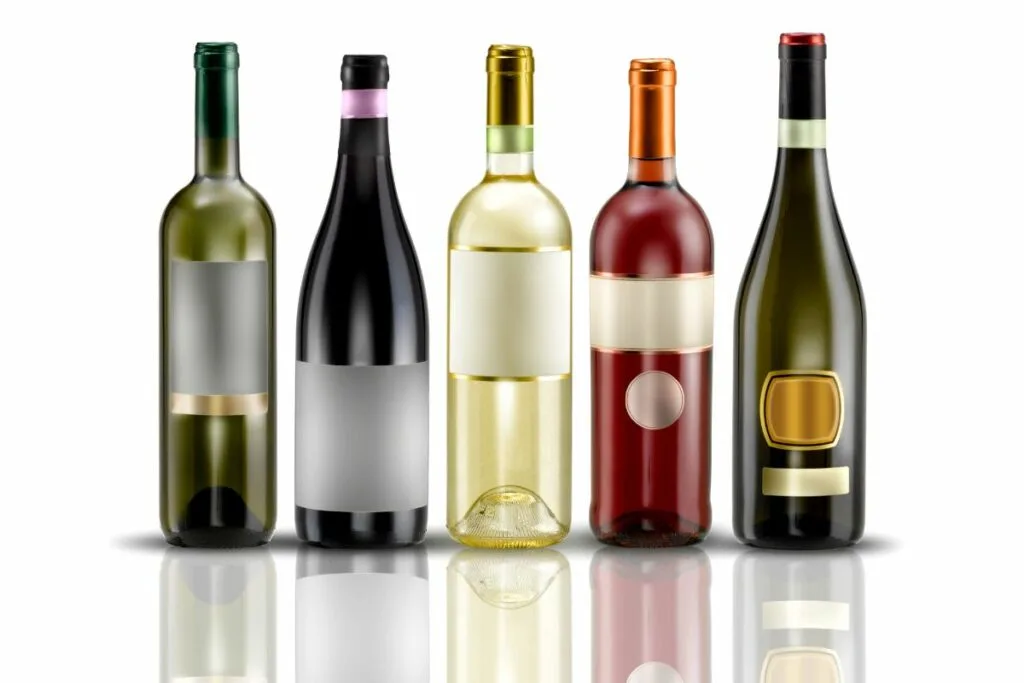As an Amazon Associate, I earn from qualifying purchases with no additional costs for you.
Wine drinkers often look to their garages as a safe place to store wine long-term. These out-of-the-way locations seem like viable locations, but are they really a good option if you want to keep your wine in great condition?
Garages are not ideal for wine storage because of temperature fluctuations, sunlight exposure, and vibrations. Long-term wine storage is not recommended unless using a proper wine cabinet or refrigerator. Short-term wine storage could be a more viable option for garages.

TIP: If you want to check out the best refrigerator for wine storage, I recommend trying out the Avation (18 bottles) compressor refrigerator with Wi-fi smart app control cooling system. You can find this refrigerator by clicking here (Amazon link).
Are Garages Suitable for Wine Storage?
Whether starting a new wine collection or expanding on an existing one, the question of storage is inevitable. Looking around the home, the idea of storing bottles in the garage is bound to come up – so much space, out of the way! However, serious collectors should be wary of this train of thought.
Recommendation box: Everything you need to enjoy your wine as much as possible. All recommended products are personally tested and regularly used by experts from this website (Amazon links):
> Ivation Wine Cooler – Energy-efficient wine cooler for 18 bottles with Wi-fi smart app control cooling system.
> Wine Rack – Beautiful, elegant wood rack for up to 7 bottles and the choice of vertical or horizontal storage.
> Durand Wine Opener – Classic vintage wine opener (we like all these classic staff).
> YouYah Iceberg Wine Decanter – The most beautiful and handy wine decanter we personally use.
> Bormioli Rocco Wine Glasses – A set of eight elegant and traditional wine glasses made in Italy.
> Vintorio Wine Aerator – Simple but really useful wine aerator for a reasonable price.
> The Original Vacu Vin Wine Saver – The best wine saver on the market in a package with two vacuum stoppers and two wine servers.
And if you want to become a true connoisseur of wine, we recommend reading the book Wine Folly: The Essential Guide to Wine (Amazon link), where you will find all the information you need about winemaking, wine varieties, flavors, and much more.
In a broad sense, storing wine in the garage is less than ideal for a number of reasons. Wine, especially that intended for long-term aging, requires some specific conditions for ultimate quality.
Cool, constant temperatures (a steady 55° F is best for both reds and whites), along with a certain amount of humidity, lack of vibrations, and a fairly dark space are needed for protecting wine in the long term – think of an old underground wine cave in France, and these conditions try to mimic that.
A garage, on the other hand, can be subject to a wide range of temperatures and moisture (depending on local climate and level of insulation), heavy vibrations, and changes in brightness. Even if it is not exactly 55° F, keeping wine at a steady temperature is one of the most important factors in wine storage.
The wine will be just fine at a steady 52-60° F, but it will not fare well at all if the temperatures are fluctuating constantly between warm days and cool nights, or changes in the seasons.
Besides the possibility of cooking or freezing the wine, swings in temperature can cause the liquid to expand and contract, dislodging the cork and causing seepage.
It is not completely understood why vibrations damage wine, but the general theory is that they speed up the natural chemical reactions that occur in an aging bottle of wine. Prematurely aging a bottle can negatively affect the resale value, as well as the final quality level.
UV light can also cause the wine to prematurely age. Some wines are bottled in darkened glass to help minimize the issue, but not all – and if the garage has windows or the door is opening and closing often, this could let in a lot of harmful rays.
Storing wine on shelves in the garage or cases on the floor is definitely not desirable. Unprotected, these bottles would be subject to every temperature fluctuation, vibration, and change in brightness level.
Bottles should always be stored on their sides to prevent the cork from drying out, and also allow sediment to accumulate in the specific part of the bottle (meaning that simply keeping bottles in their cardboard cases is not a great idea, even if they’re upside down).
If wine must be stored in the garage, a wine fridge may help with some of these potential hazards, and a refrigerated wine cabinet is an even better bet. For the best peace of mind that one’s wine collection is safe and sound, consider a more appropriate part of the home or an off-site wine storage facility.
TIP: Most wines go bad once you pop the cork within a day or so. But a Coravin Wine Preservation system (available for a great price on Amazon) can extend the life of your opened wine for weeks or even months. It is awesome. You should check it out to see if it fits your lifestyle.
Many people worry that wine refrigerators are noisy and thus more appropriate for a garage. In this article, you’ll see that these concerns are mostly unfounded. This is a great article we wrote that will put your mind at ease.
TIP: To learn how light affects wine, read this interesting article. It will teach you what light does to wine and how to protect your wine collection from damage. And this article really dives into what sunlight can do to wine. A great read!
Is a Garage Good for a Wine Refrigerator?

Irregular vibrations are a big no-no when it comes to long-term wine storage. One reason that garages are less than ideal for storage is the constant coming and going of vehicles, the opening and closing of the garage door, and even foot traffic can all damage bottles stored improperly.
Some very high-end wine fridges work to eliminate vibrations, but a basic model will not, making it unsuitable for wine storage in a garage.
Furthermore, the changes in light exposure (windows, doors opening, etc.) in a garage can damage wine in storage. Again, some wine fridges offer a level of UV protection, but most do not.
Most wine fridges allow for temperate control (some even have dual zones) and some incorporate some sort of humidity control.
Finally, most inexpensive wine fridges are not powerful enough to hold a steady temperature in extreme situations, so taking the local climate under consideration is important when considering a wine fridge (and the electricity bill).
Erratic swings in temperature are wine’s worst enemy, and a basic wine fridge will not protect against this major potential threat.
Depending on the size of one’s wine collection, a wine fridge in the garage may help safeguard wines for shorter-term storage, before the bottles are opened or moved into a more permanent storage spot.
Is a Good Cabinet Suitable for a Garage?
Refrigerated wine cabinets are basic wine fridges on steroids. These devices are usually quite large and can store dozens or even hundreds of bottles of wine.
Furthermore, they are typically more powerful than smaller fridges, and therefore able to hold steady temperatures (and the cooling units can usually be replaced, making them better equipped for handling the wear and tear of being in the garage).
Cabinets also provide more robust humidity control, ideal for longer-term wine storage, and provide more customizable racking options. There are a few downsides to these models, especially when considering installing one in a garage.
TIP: Is there a difference between a wine refrigerator and a wine cooler? Find out here. If you do keep your wine refrigerator in the garage, consider a lock-up type. This review discusses the best options with locks.
First of all, they can be very large and take up quite a bit of precious garage space. As might be expected, high-end refrigerated wine cabinets can be very expensive.
Additionally, these cabinets are often very aesthetically pleasing, with intricate wood and metalwork – something that may be wasted languishing in the dark corner of a garage.
Both wine fridges and cabinets have their limitations. They allow for a specific number of bottles and no more, restricting the expansion of one’s collection.
Furthermore, they usually only can accommodate stand-size 750mL bottles, so if larger formats (magnums or larger) are a substantial part of one’s collection, this could be an issue.
How to Store Wine in the Garage

If storing wine in the garage is a necessity, there are ways to optimize this to protect the wine. Insulated garages are much more suitable, as keeping wine at consistent temperatures is key for maintaining quality. In climates with extreme weather, storing wine in an uninsulated garage could lead to disaster.
Too hot, and the wine could end up ‘cooked,’ and too cold, it could potentially freeze and turn into a slushy mess (or even expand and push out the cork or shatter the bottle).
Wine can start to freeze around 20° F, but perhaps more concerning, cold, dry temperatures can cause the cork to dry out, allowing more air into the bottle and causing the wine to prematurely oxidize.
Constructing a wine room within the garage might work, although it would eat up an awful lot of space and can be quite pricey. Be sure to consult a professional to help obtain ideal conditions before undertaking such a project.
Converting a garage into a space used solely for wine storage would be an option if circumstances allow, with proper insulation and humidity control.
This would eliminate the vibrations caused by moving vehicles in and out, and the swing in temperatures and brightness levels brought on by opening and closing the garage door.
Also, completely custom rack options would allow for a variety of bottle formats and sizes, and the overall capacity would be much larger.
TIP: To learn if a wine fridge can be safely kept on the carpet, please check out this helpful article. Read this article to discover which wine refrigerators have Freon – helpful information for storing wine in the garage!
Which Wines Are Best Suited for Garage Storage

Storing wines intended for immediate consumption in the garage is usually okay (as long as the temperatures aren’t too extreme). Young, light, fun, fruity wines or those of lesser quality are not crafted for long-term storage, regardless of whether it is in a garage or a wine cellar.
Storing these wines in a garage for a few weeks, or even a couple of months (again, keeping an eye on temperatures) should not damage the wines, and then they’re handy to grab for a casual Tuesday evening dinner. Again, this only applies to wines for early consumption, not for special bottles or wine purchases made as investments.
If there is an alternative space in your home for wine storage, explore that option before settling on the garage. Basements, with their built-in cool temperatures and humidity, often provide ideal wine storage conditions (a custom wine cellar is even better). A rarely used dark closet will work in a pinch, as long as the temperatures remain stable.
Avoid kitchens, laundry rooms, and utility rooms – the rising temperatures in these spaces can damage the wine. Also, avoid rooms with a lot of natural light.
Remember, there is no point in collecting fine bottles of wine if the contents are going to be destroyed due to faulty storage systems.
For a serious collector or aficionado, the garage should be a last resort – and in those cases, an off-site professional wine storage facility is a better option for protecting investments.
TIP: Check out this page for a complete list of wine products and accessories I love. You’ll find my recommendations for wine refrigerators, decanters, and aerators and the best place to buy wine online. Click here to see the complete listing.
